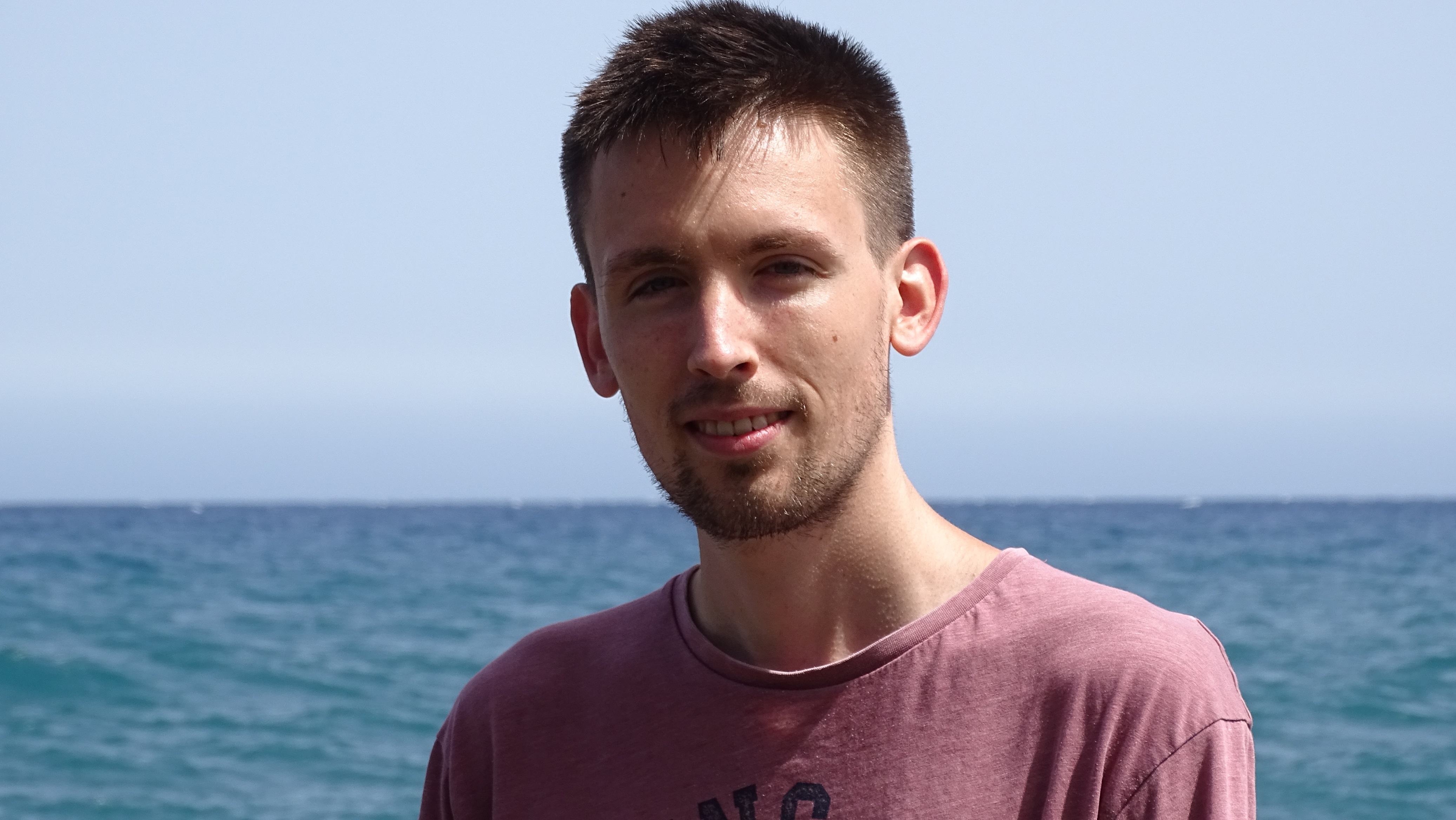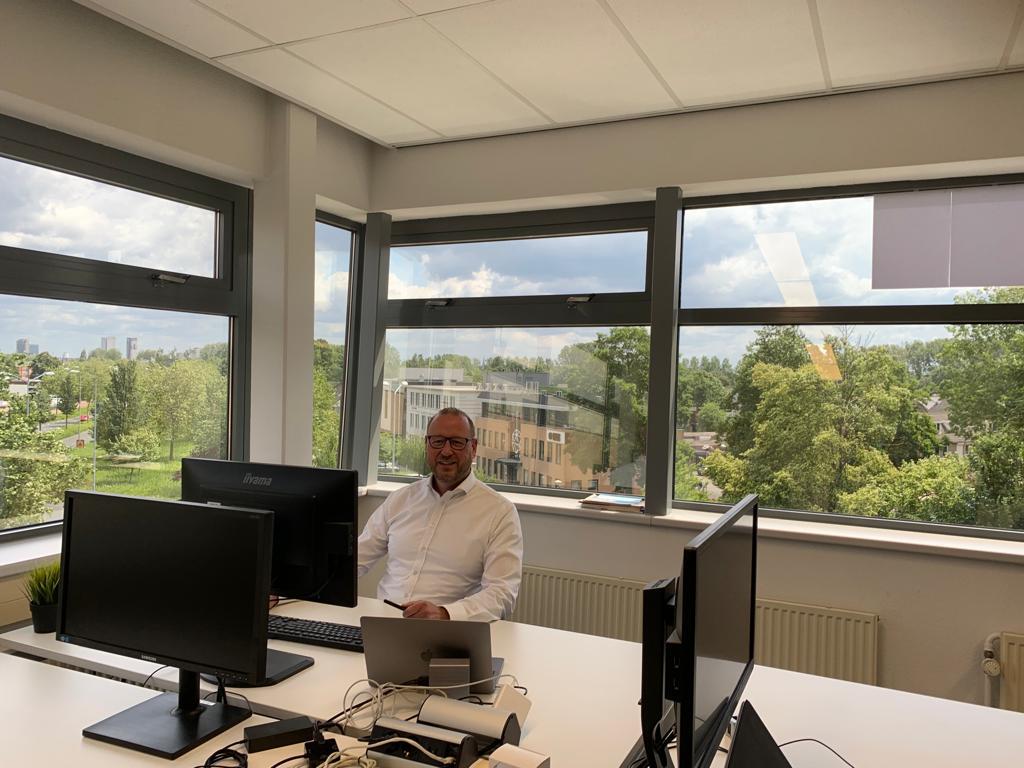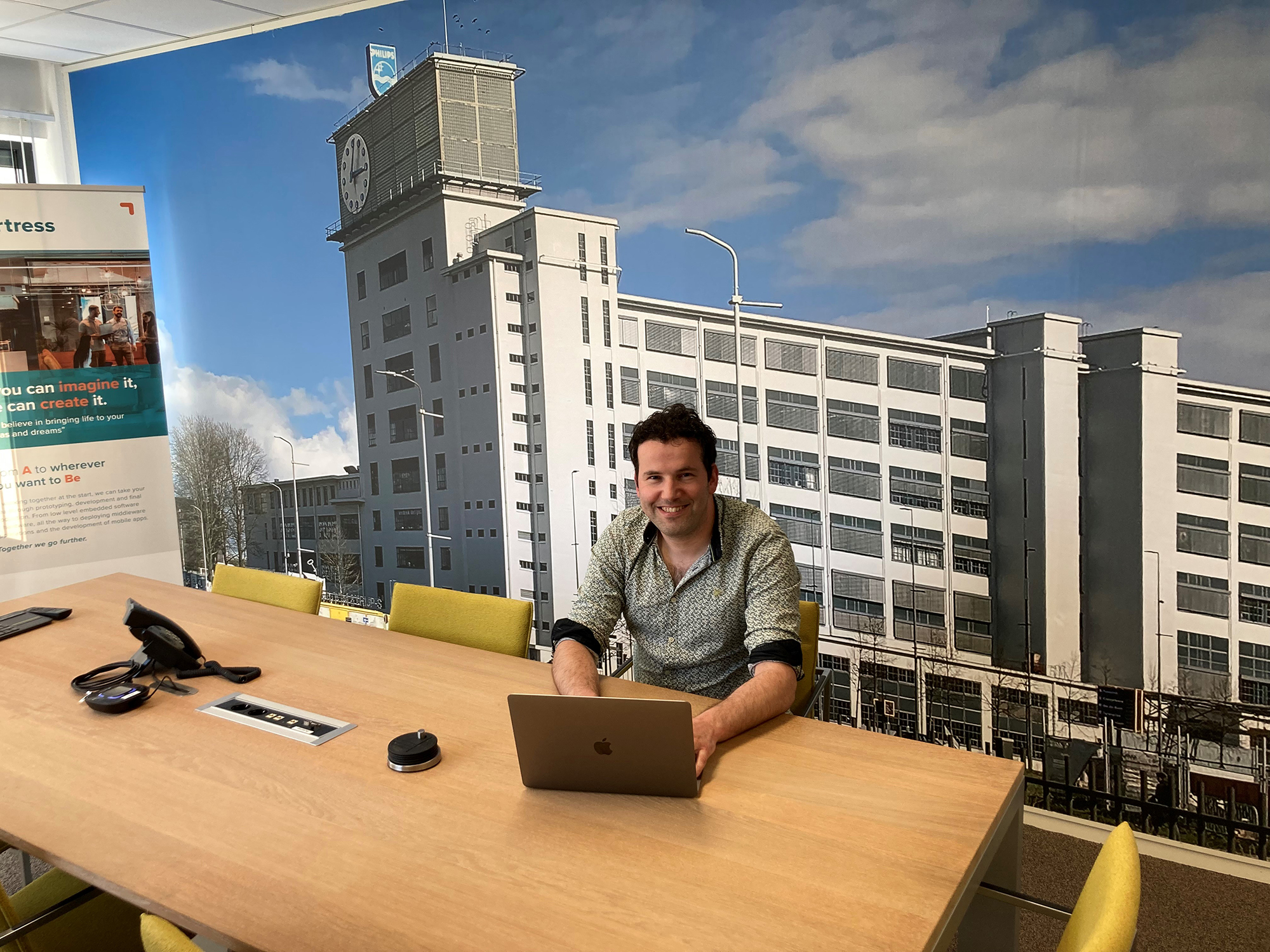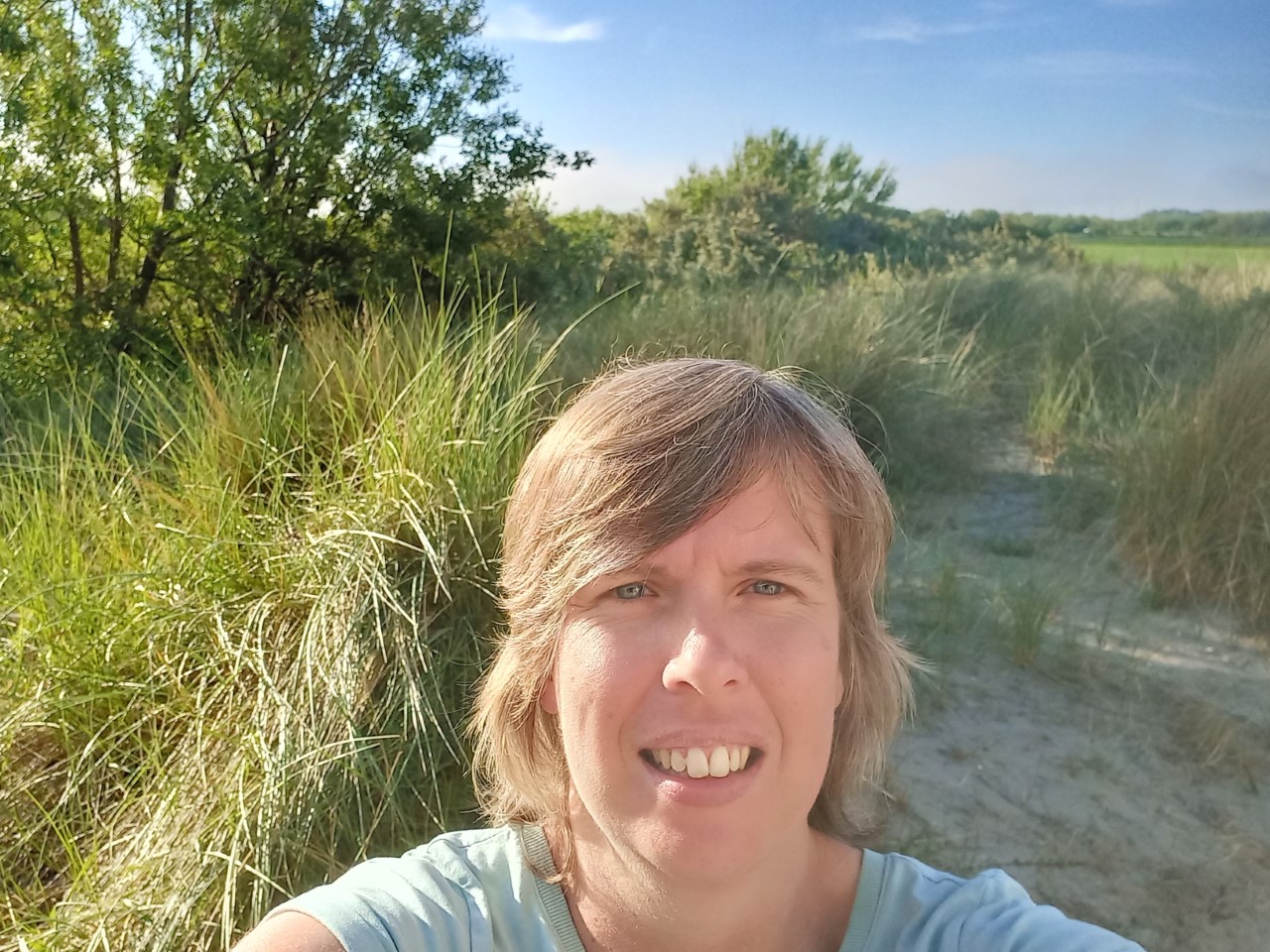
This group of users consists of Atlas Copco service engineers, but also includes account managers and clients. A system of roles and rights protects who can see which part of the information that is being collected from more than 400,000 machines that are monitored remotely. "It's really cool to be working on a product that is used so intensively by so many different types of users in all parts of the world. It’s a challenge to develop a front-end that allows all users to quickly find the information they need."
Pauline is a lateral entrant in the software development profession. She studied Human Kinetic Technology – a beta study in which she learned the basics of programming. Because she didn't immediately find a job in her field of specialisation, she responded to a call from a company that trains people with a beta background for a job as a software developer. "It was a great decision," she says seven years later. "During my studies I was taught the basics of programming. For example, I learned how to use a sensor to measure a person's jumping power and how to read the sensor data afterwards. The focus was on processing signals, and that’s the work Stan's team does in this SmartLink project.
My current work as a front-end developer made me realise that I enjoy making things that are visible to the end user.
After all, it’s important that data is processed and enriched in the right way, but I have discovered that my heart lies in finding ways to present that data to different user groups in the best possible way. In the case of SmartLink, there are three user groups – Atlas Copco service engineers and account managers, and clients using Atlas Copco's equipment – and each of them has a different information requirement. How do you ensure that 27,000 different people find exactly the information they are looking for, about the devices they manage or have in use?"
She has learned a lot about these aspects from the partner with which ICT Group has worked in this project and who is specialised in UX design. "Software developers are clever in applying IT and are likely to think that everyone handles an application so easily. While the reality is, of course, that our client's clients work in a hospital or in a factory, and they must be able to access the information they need to do their job in a very simple manner. I think it's important to make an indepth investigation of those users and think about how to optimise the way in which you support them. There are two sides to this: thinking about what data they need to make the best decisions in their work. And how you present that information in such a way that everyone immediately understands it."
Growth to the role of lead developer
Pauline has been working at ICT for six years, and during the last three years of this period she has been involved in the SmartLink project at Atlas Copco. SmartLink is a platform that allows users from hospitals, factories and power plants worldwide to remotely read Atlas Copco's gas and compressed air solutions. During this project, her role has changed from software engineer to lead developer, which means that she communicates with the product owner, that she is responsible for prioritising the backlog items, and that she is the point of contact for her team. "I like that leading role, but I have discovered that I prefer developing things myself. And that’s the reason why I wouldn't want to grow into the role as team leader. For me, the current division of my work is perfect: 40 percent of the time is spent on managing tasks, and I can work as a developer during the remaining 60 percent."
That’s also what I like about working for ICT Group: you get to work for different clients, you use different techniques and so you are constantly developing and growing."
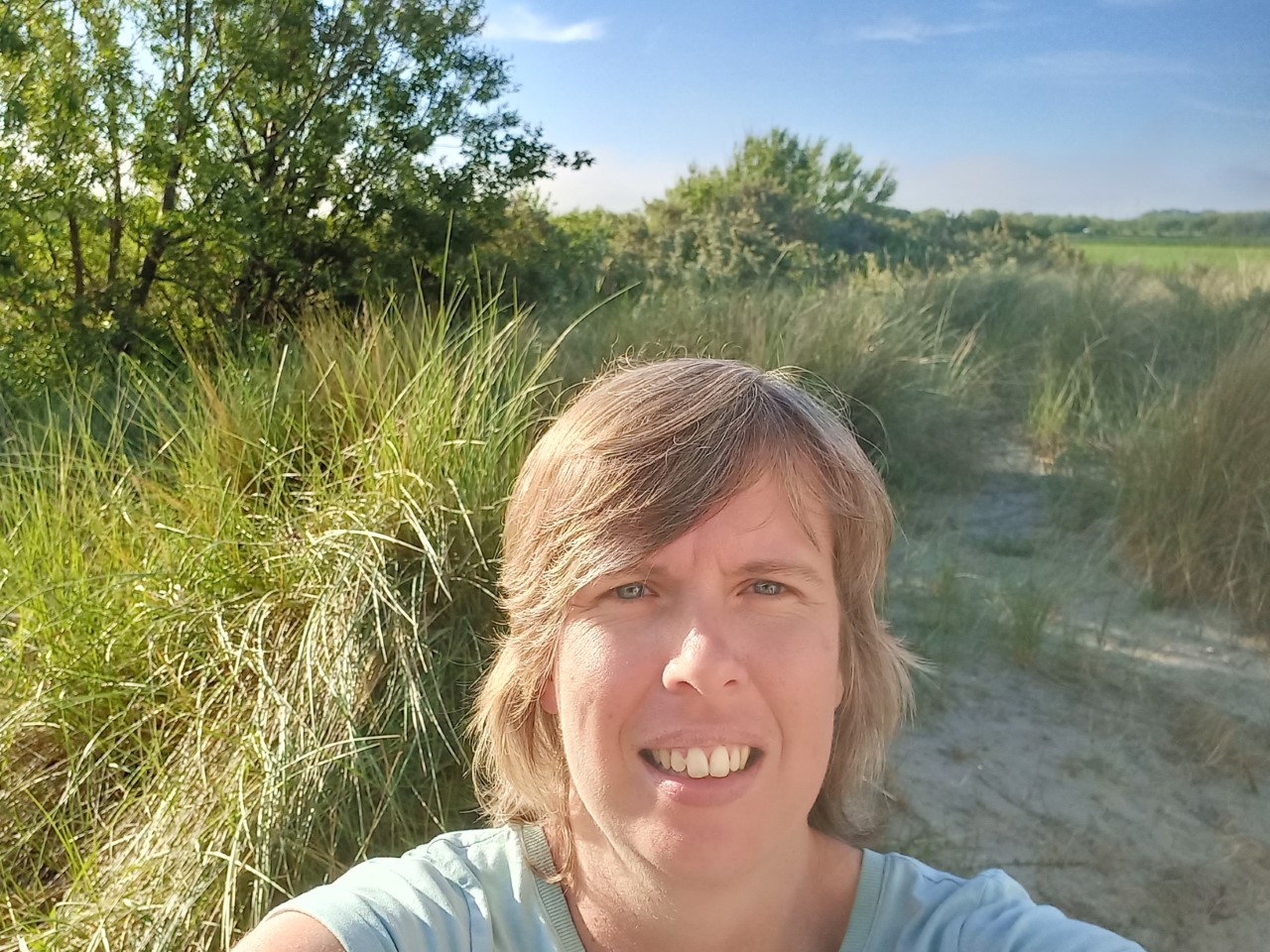
Integration of a variety of technologies
One of the most enjoyable aspects of the Atlas Copco project for Pauline is the integration of various technologies: Azure, C#, .NET Core and React. She already had experience with the first three, however React was new to her. "I think it's important to keep developing. I have to, because developments in my field move so fast. That’s also what I like about working for ICT Group: you get to work for different clients, you use different techniques and so you are constantly developing and growing."
Working on different projects for different clients
After having spent three years on this project, Pauline would like to switch to another project in the near future. She doesn't know what that's going to be, but she keeps her eyes and ears open. “I currently work for the Transport & Logistics business unit, but with my background in Human Kinetic Technology, healthcare also strongly appeals to me. Although I can see that our business unit also does cool projects, for example in the port of Rotterdam. That's the great thing about ICT Group: the company is so broad and you can go in so many different directions. That's also what I love about my work. I see many colleagues around me who have worked for ICT Group for many years, but who actually have a different job every two or three years because they are deployed in a different project. I have now worked on two projects myself and I am very curious about what my third job will be."
